These 14 Grocery Stores Will Close Locations in 2025

In the ongoing search for savings, discerning shoppers often rethink popular brand names and instead choose to opt for a generic substitute — or do without. Whether the nearest supermarket was part of a nationwide chain or a local mom and pop, it was easy to overlook the notoriously slim margins that grocery stores operate under to paint them as the villain behind a thinned out shopping cart. That said, the ongoing impact of inflation following supply chain issues during Covid wasn't the only reason that retailers had joined their customers in cinching their belts ever tighter by closing locations.
At the beginning of 2025, the research and advisory firm Coresight Research anticipated that around 15,000 retail locations would close compared to less than 6,000 openings across the country. That figure more than doubled the closings from the previous year. Leadership changes brought on by retirements, ousters, and buyouts were coupled with revamps — successful or otherwise — to explain some of the reasons even well-known chains were asking their customers to shop elsewhere. At the same time, employees were sent packing if they weren't hard to come by as seen in instances were safety concerns were paramount.
Read more: 14 Discontinued Costco Foods We Desperately Miss
Albertsons
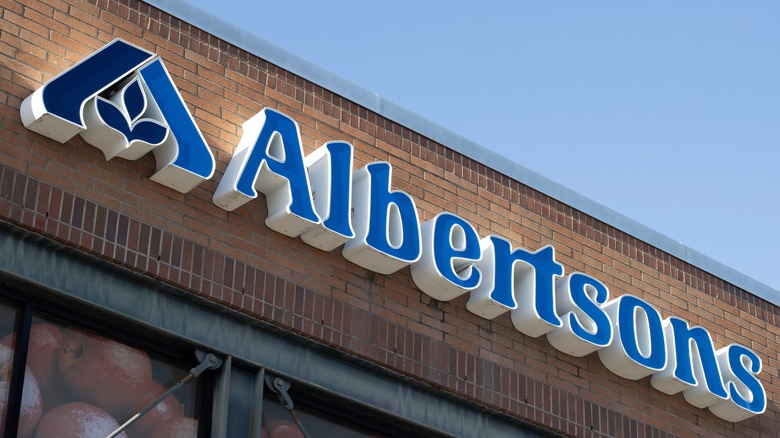
As growth prospects were anticipated for the Boise-headquartered grocery chain approaching 2025, an unsuccessful merger towards the close of 2024 resulted in Albertsons facing potential store closings. The intended partnership with Cincinnati’s Kroger disintegrated, escalating into a contentious legal battle over which party should bear responsibility for the deal falling through. This situation led Albertsons to pursue substantial compensation amounting to billions of dollars aimed at covering litigation costs, diminished asset values, along with a hefty $600 million breakup charge.
During the January 2025 earnings call for the third quarter of 2024, the president of Albertsons stated that Chief Financial Officer Sharon McCollum clarified That store closings were expected in the following years due to the "overall health of the property portfolio." When the merger did not materialize in December 2024, the supermarket chain informed the 87 staff members at the Roseburg, Oregon site about their intention to close that outlet in February 2025, marking it as the first official shutdown for the company.
Amazon Fresh
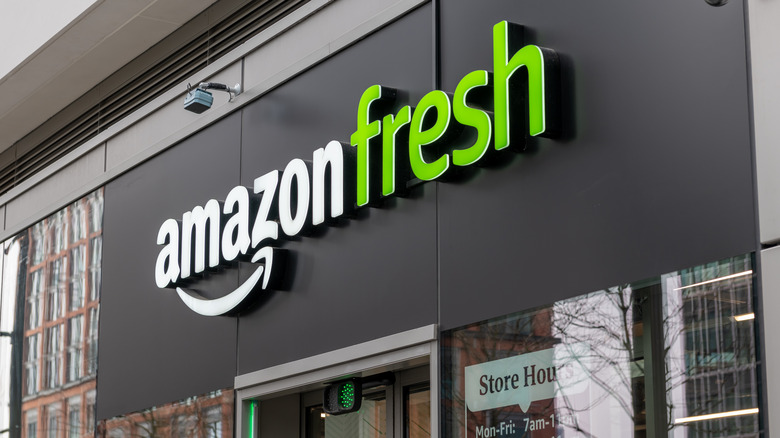
Whether testing new recipes or striving for groundbreaking advances in society, daring experiments were frequently the sole path ahead—even if that entailed taking risks. venture into the wilderness and oddity Although ownership by the globe’s biggest online retailer facilitated these initiatives, it did not ensure success. About a year following Amazon’s decision to discontinue its “Just Walk Out” technology at its Fresh and Whole Foods Market stores, two Fresh outlets were slated for shutdown.
Operating for fewer than three years, both the Thousand Oaks, California store—set to shut down in April—and the Manassas, Virginia outlet—which closed in March—were part of Amazon’s decision affecting over 150 workers overall. As one of the pioneers in exploring retail innovation and shopper ease, this Californian company was certainly not alone in its endeavors. Despite pivoting away from their “Just Walk Out” technology towards advanced self-checkout options like intelligent shopping carts, Amazon proceeded with opening another Fresh store in Silver Spring, Maryland during March.
Giant
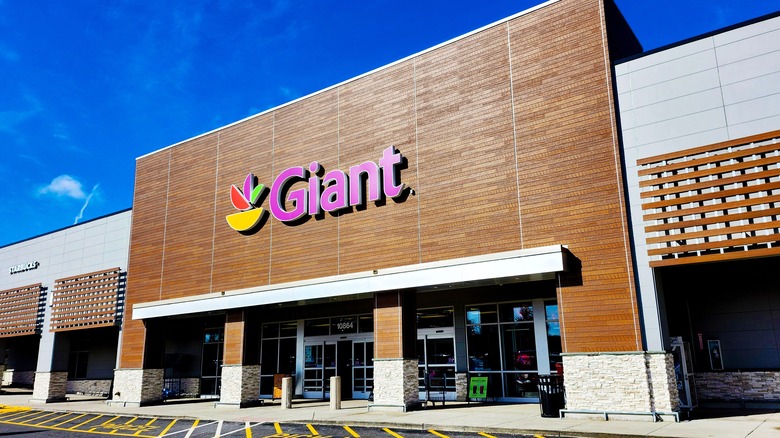
When it came to the decision to close a supermarket in Ashburn, Virginia the reasoning for Giant Food purportedly had to do with over-saturation. Owned by the Netherlands-based Ahold Delhaize, the grocery company had announced the move to shutdown operation in the Shoppes at Ryan Park retail center following 19 years of service for the location. The company asserted that other nearby Giants — on top of pickup and delivery options — were sufficient to handle the needs of customers. At 65,000 square feet, that particular store was the largest Giant in the vicinity, exceeding its closest peer by nearly 10,000 square feet.
Apart from Giant, Ahold Delhaize owns several retail brands including Food Lion, Hannaford, and Stop & Shop. According to the final-quarter 2024 report, sales across their U.S. operations faced significant setbacks. Besides attributing this decline partly to reduced fuel sales, the report also highlighted the sale of the online grocer FreshDirect and the decision to close down 32 Stop & Shop stores prior to year-end 2024 as contributing factors.
Grocery Outlet
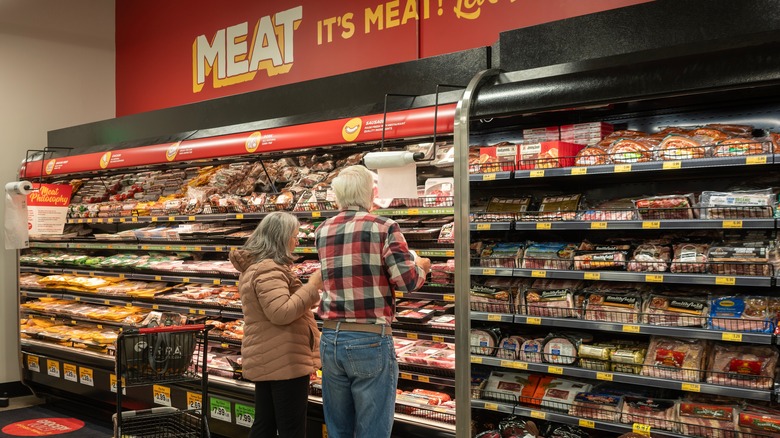
A bid to realign strategies aligned with the sudden departure of Grocery Outlet’s CEO in late 2024, setting the scene for significant transformations in 2025. With the former leader stepping down at the California-based discount grocer during its reassessment period towards the end of the fiscal year, leadership fell temporarily into the hands of an interim chief until January 2025. That month marked the transition when Jason Potter, previously associated with The Fresh Market, assumed control and embarked on a restructuring initiative. This strategic overhaul was detailed within the Q4 report, encompassing broad objectives and eliminating expensive ventures from their plans.
In addition to ending the leases for unopened stores that were considered subpar, Grocery Outlet also scrapped warehouse initiatives as they prepared for fiscal year 2025. Even with the cancellation of 23 leases, the company remained optimistic about opening between 33 and 35 new locations this year. As Potter stated, Grocery Outlet In regard to the "significant expansion prospects," as he aimed to achieve the company’s “utmost capability” after assuming the roles of president and CEO, he stated, “I grasp what is necessary to guide and expand this enterprise.”
Kroger
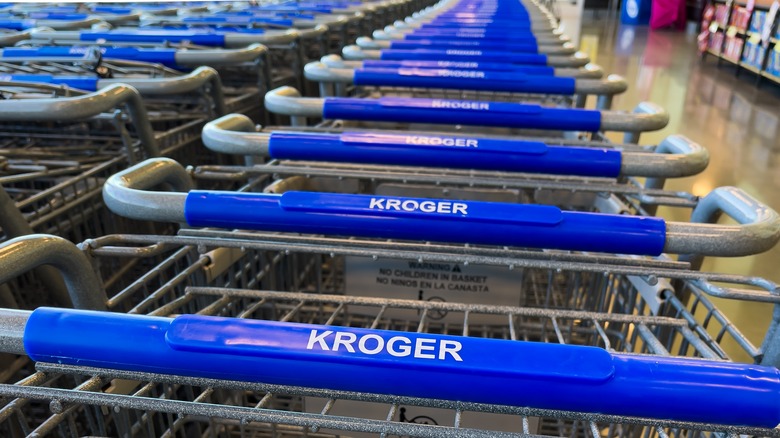
Keeping quiet about certain details regarding store closures, the party opposite to the unsuccessful Albertsons merger did not escape unharmed. Despite not providing reasons for their choice to shut down Texas locations in May and June, Kroger declared the end of operations at its stores in Dickinson and The Woodlands. Nevertheless, this major grocery chain, known as one of the leading players in the industry, faced significant impacts. best locations to buy seafood , had maintained transparency regarding the January closure of a Nashville, Tennessee store. This particular location closed because the Belle Meade Plaza Shopping Center changed hands to new owners in 2023.
When Kroger provided affected employees with the option to move to different stores, they simultaneously submitted a reply to Albertsons following the competitor’s legal proceedings resulting from the aftermath of the merger. Kroger , the competing grocery chain was accused of running a secretive campaign against the merger plan and had developed an alternative strategy should the deal fall through. Based on these claims, Kroger asserted damage claims against Albertsons and aimed to recover its investments made as part of the merger agreement.
Lunds & Byerlys

Although it raised alarms about a potential food desert, Minnesota’s high-end grocery store chain cited numerous factors for closing its downtown St. Paul location after over ten years in business. With operations expanded to almost thirty stores throughout the Twin Cities area, the 2022 fire was merely one issue affecting Lunds & Byerlys’ capacity to operate smoothly. As detailed in their statement announcing the March shutdown, they highlighted the expensive restoration work that caused delays in getting back open post-arson attack.
Further criminal activities such as harassment and shoplifting had worsened the challenges faced by the market in retaining employees. Additionally, the reduced pedestrian activity following the COVID-19 pandemic exacerbated the situation, leading to decreased sales in the downtown district. The anticipated effects of closing down drew attention from city officials concerned about the gap created by losing Lunds & Byerlys. Among them was City Council member Rebecca Noecker, who pledged to bring a new grocery store to the location by leveraging the pre-existing structure, thereby guaranteeing residents easy access to their essentials. Ingredients to create their hometown Juicy Lucy burgers cheeseburgers.
Piggly Wiggly
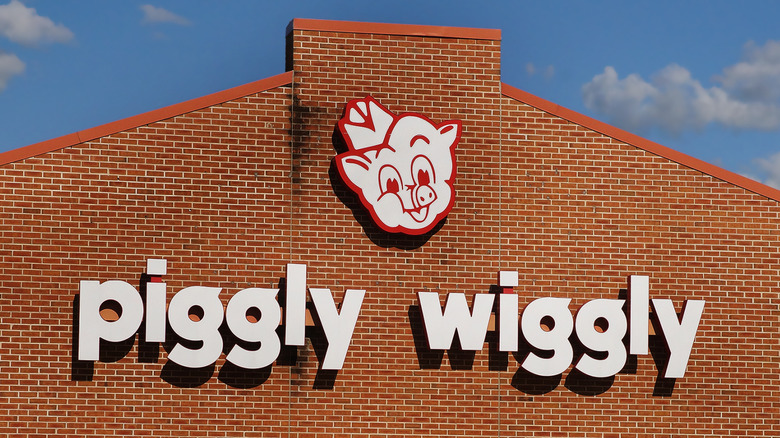
Frequently taken for granted due to their persistent existence, unexpected announcements about closing certain markets can be both startling and poignant. For longtime customers in Alabama and South Carolina who shopped at Piggly Wiggles within their neighborhoods, adjusting to this shift was inevitable after years of frequent visits to these locations. historic supermarket .
After moving from its initial location in Lanett, Alabama, customers have been visiting the Cherry Valley Shopping Center Piggly Wiggly since the '80s up till its closing in January 2025. Similarly, over five decades of service in Columbia, South Carolina led residents to affectionately call the grocery store the "Social Pig." In a March Facebook announcement, owner Darrell Miller notified the public that the lease on this popular local hangout—where patrons frequently encountered familiar faces—had ended. Despite efforts, negotiations for renewing the lease did not succeed. Consequently, Miller expressed gratitude towards loyal shoppers, employees, and what he referred to as the “Pig People,” those dedicated individuals who built careers through serving their community at the Piggly Wiggly.
Royal Blue Grocery

Despite the onset of the COVID-19 pandemic, crime had been a significant concern for the small network of bodegas functioning within Austin, the state capital of Texas. After providing services in the bustling downtown district near the well-known Sixth Street for 15 years, Royal Blue Grocery declared plans to shut down one of their prime locations among the seven they operated. According to co-owner George Scariano, revenues were still hovering between 60% and 70% below where they were prior to the start of the pandemic. Meanwhile, landlord Annabelle LeBlanc reported little difficulty in locating another occupant following Royal Blue’s request for assistance with rental payments.
Arguing with the Austin Business Journal that the region was "flourishing," "expanding and changing" in emailed statement LeBlanc mentioned that a proposed venture from New York intended to run operations from the two-level location. Besides affecting Royal Blue, which would have displaced about a dozen staff members potentially relocating to another branch, Scariano added that Wee Cozy Kitchen—a Malaysian eatery collaborating with him for this space—also faced an unclear path forward due to the shutdown.
Safeway
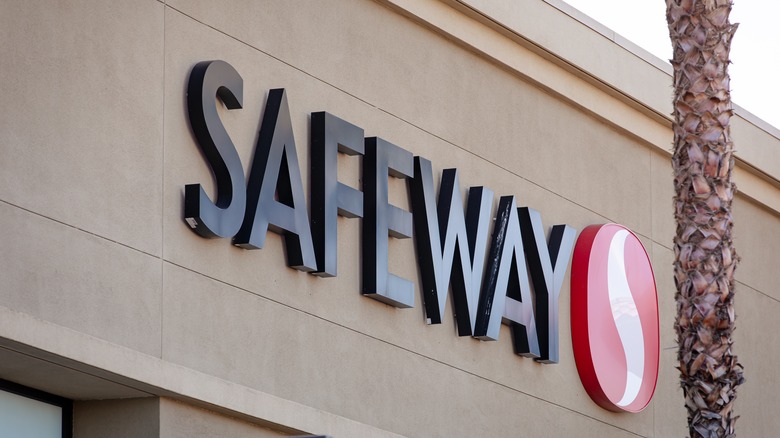
Following the aftermath of the merger between Albertsons and Kroger, Safeway—a subsidiary of Albertsons—announced store closings scheduled for 2025. These closures would span along the Pacific coastline from California to Alaska, as well as reach eastward into Maryland, affecting at least six different sites. In downtown Anchorage, Alaska, the Carrs-Safeway—the most senior among the chain’s stores and one out of nine within the city—is set to close in May due to persistent poor performance. Similarly, residents in Baker City, Oregon, were informed about an expected closing around the same time because of disappointing sales figures.
As a Safeway in Rockville, Maryland had a March closure, some speculated that a planned opening of a Wegmans nearby had influenced the decision. Meanwhile, Californian Safeways in Pinole, San Francisco, and Vallejo added safety concerns to their underperformance as closure dates had been announced throughout the spring. Sales had been a concern for the Vallejo location — one of three — dating back to 2020 when Safeway had filed suit against the development of a nearby Costco arguing there had been a violation of the California Environmental Quality Act. Ultimately, Safeway had settled the dispute and an agreement had been made with the city council.
Shaw's
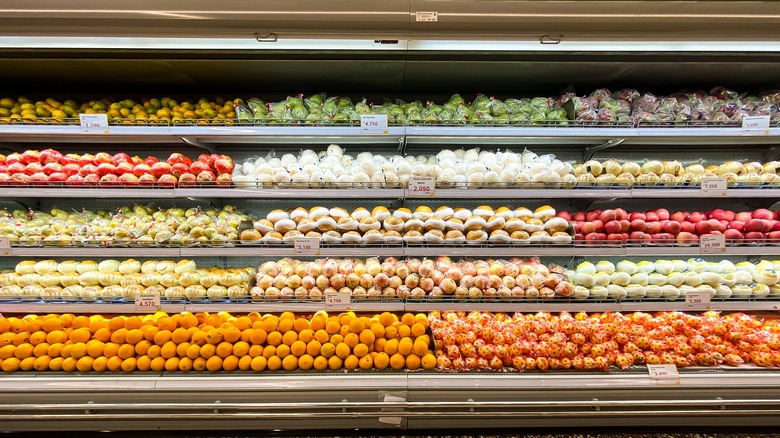
On another part of the Albertsons subsidiary list, Shaw’s based in West Bridgewater, Massachusetts, revealed that two of its outlets would be shutting down. With approximately 129 stores spread across Maine, Massachusetts, New Hampshire, Rhode Island, and Vermont in the northeastern U.S., the company disclosed in March that these closures would affect areas within the Bay State and the Granite State. The specific sites targeted for closure were located in Concord, New Hampshire, and Gloucester, Massachusetts.
Much like showing mutual respect for each other when interacting conveyor belt etiquette Shaw’s proposed transferring affected employees to their other locations within each city. A representative from the firm spoke with WBZ-TV about the “difficult choice,” emphasizing the company’s commitment to maintaining customer satisfaction by providing valued products and services. Besides numerous Shaw’s outlets, Albertsons also managed 21 Star Market branches across Boston, Massachusetts. This area was particularly significant as it housed seven out of many Stop & Shop stores that shut down in 2024.
Thom's Market

The slogan "Keep Austin Weird" did not protect Sixth Street alone from losing grocery stores. Besides the shutdown of a Royal Blue Market downtown, all three branches of Thom’s Market were set to close in April following almost two decades of service to the state’s capital. Unlike some businesses that chose to shut down on Easter Sunday out of respect for employee observances, owner Bill Thom explicitly stated that his business would be ceasing operations altogether.
Thom mentioned, "What began as just a modest community bazaar grew into a cherished local icon." farewell statement This message expressed gratitude to both customers and staff members. In contrast to typical closings where empty spaces might remain after the grocery store leaves, Thom’s also declared that they reached an understanding with Austin’s Select Market to take over the leases for all three sites. This enabled their reopening just two days later under a different brand name.
Tops Friendly Markets
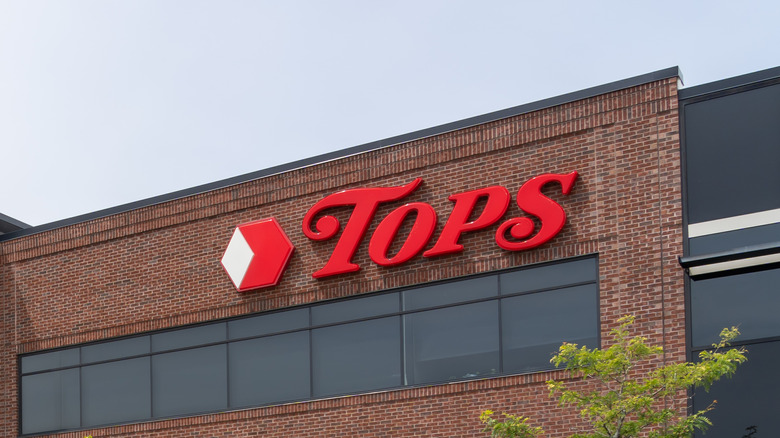
Another instance of removing underperforming elements to maintain the vitality of the organization, staff members at the DeWitt, New York Tops Friendly Market received notice regarding their option to relocate prior to the store’s shutdown in April. Serving as just one among more than 150 outlets across New York state, Pennsylvania, and Vermont, this particular location in DeWitt had been an integral part of the local area for over four decades.
Emotion and practicality weren't sufficient to sustain the enterprise amid ongoing challenges for enhancement, such as sharing space with a neighboring school — which hindered Tops' ability to purchase additional land for expansion — proving far too expensive to surmount. Consequently, the company declared an investment of $2 million towards refurbishing a previous ShopRite site in Ellenville, New York, enabling Tops to achieve greater value by launching a fresh outlet instead.
Walmart
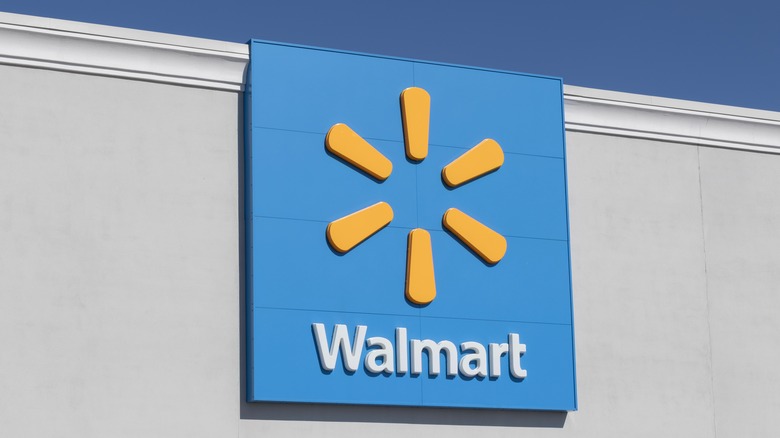
Both store-level and corporate positions at Walmart faced uncertainty after the retail behemoth announced plans to permanently shut down at least 11 stores nationwide in 2025. The affected locations spanned California, Colorado, Georgia, Maryland, Ohio, and Wisconsin, with poor performance being the main reason behind these closures. Despite this development affecting just a fraction of Walmart’s extensive network—over 4,600 outlets across the U.S.—it underscored how e-commerce trends have firmly taken root beyond general goods into grocery sales too.
In addition to closing stores, Walmart notified corporate staff at smaller locations such as its office in Hoboken, New Jersey about an opportunity to move to either Bentonville, Arkansas—the new headquarters—or Sunnyvale, California. This came after Walmart decided to shut down its Charlotte, North Carolina facility, aiming to shift away from dispersed satellite operations towards a consolidated workforce housed primarily within fewer facilities for better cohesion.
Winn-Dixie
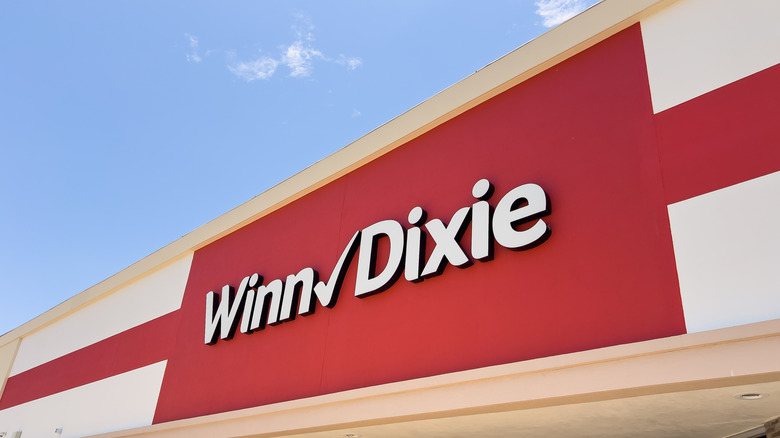
Although Kroger and Albertsons might not have been the only ones facing obstacles in their expansion efforts, Aldi seemed to encounter far fewer challenges. As a major international corporation from Germany, Aldi successfully acquired both Winn-Dixie and Harvey’s as part of its strategic growth initiatives. There will be significant developments in 2024. Instead of simply adding the stores to its collection, Aldi initiated a conversion process and started by shutting down locations previously branded under different names before reintroducing them with its own branding.
In addition to a site in Leesburg, Virginia, several Winn-Dixie stores across Florida—such as those in Boca Raton, Fort Lauderdale, and Sebastian—began shutting down operations. Simultaneously, numerous other locations within the state started selling off equipment to streamline their transition plans. Nonetheless, some closings did not align with this strategy; specifically, four sites in Alabama faced permanent closure without intentions to resume business later. Concurrently, as Aldi aimed to finalize everything by 2027, they transferred control over 170 outlets to Southeastern Grocers following an agreement reached post-acquisition from private investors earlier in February.
Want more food knowledge? Subscribe to our complimentary e-newsletter. Where we assist countless cooking enthusiasts, just like you, in becoming culinary experts, one email at a time.
Read the Article from Food Republic .
0 Response to "These 14 Grocery Stores Will Close Locations in 2025"
Post a Comment